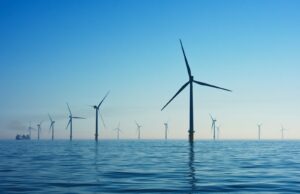‘Chronic underinvestment’ in clean energy is putting millions at risk, according to new research conducted by Sustainable Energy for All.
The research which was published today (November 19) has revealed that finance levels for electricity and clean cooking remain far below the investment required to achieve Sustainable Development Goal 7 – access to sustainable and modern energy for all.
An estimated annual investment of $41bn is needed to achieve universal residential electrification, however, according to the report, in 2018 just $16bn was committed.
Finance for decentralised renewable energy to reach those without access also fell far short, attracting less than 1-1.5% of the total finance for electricity.
In comparison, there was a significant increase in fossil fuel finance commitments in 2018, accounting for the largest portion of electricity finance for the first time in at least six years.
Finance to replace harmful cooking fuels tripled from $48m in 2017 to $131m in 2018. However, the report has highlighted that although this growth is positive, it still remains just a fraction of the estimated $4.5bn required to achieve universal clean cooking access by 2030.
Based on these findings, the authors of the report are calling for urgent, coordinated action from development finance institutions and donors to increase the share of energy access finance commitments in countries that face underinvestment.
Damilola Ogunbiyi, CEO and special representative of the UN Secretary-General for Sustainable Energy for All and Co-Chair of UN-Energy said: ‘As we deal with the ongoing challenges of COVID-19, and the ever-growing impacts of climate change, the need for modern, sustainable energy access has never been more important.
‘Yet this report shows a chronic lack of investment in electricity and clean cooking for those that need it most. The little finance that is committed is not being disbursed fast enough, stalling energy access projects that will improve people’s lives and grow economies.
‘More worryingly, ahead of a pivotal COP26, fossil fuel commitments have increased, risking profound climate impacts.
Countries must seize this moment to recover better from COVID-19 and move away from the energy systems of the past and invest in the renewable energy systems of the future to accelerate access and underpin economic growth. We need sustainable energy for all, and we need it now.’
Photo Credit – Pixabay
















